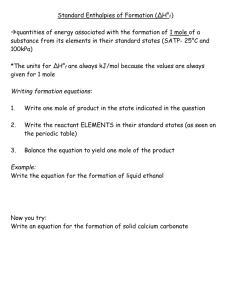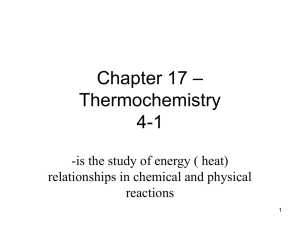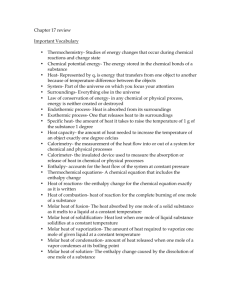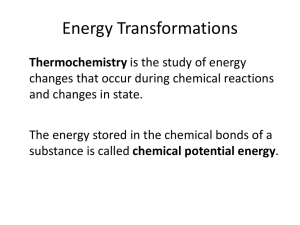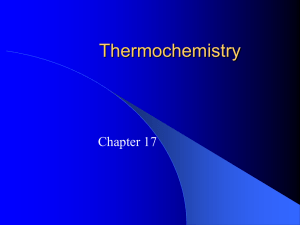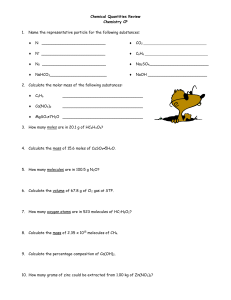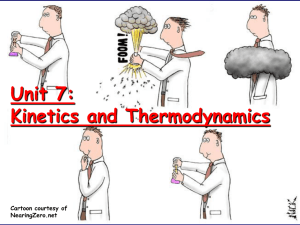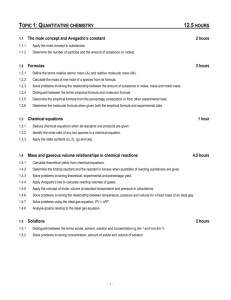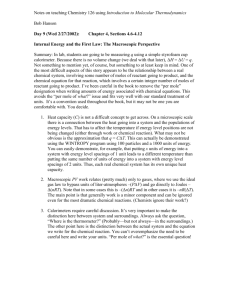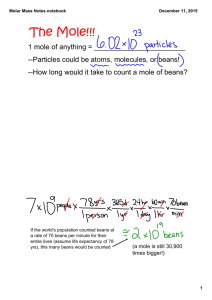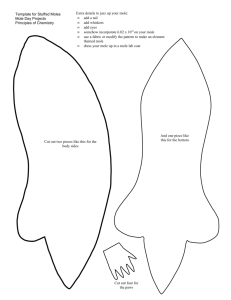Chapter 11 Review
advertisement
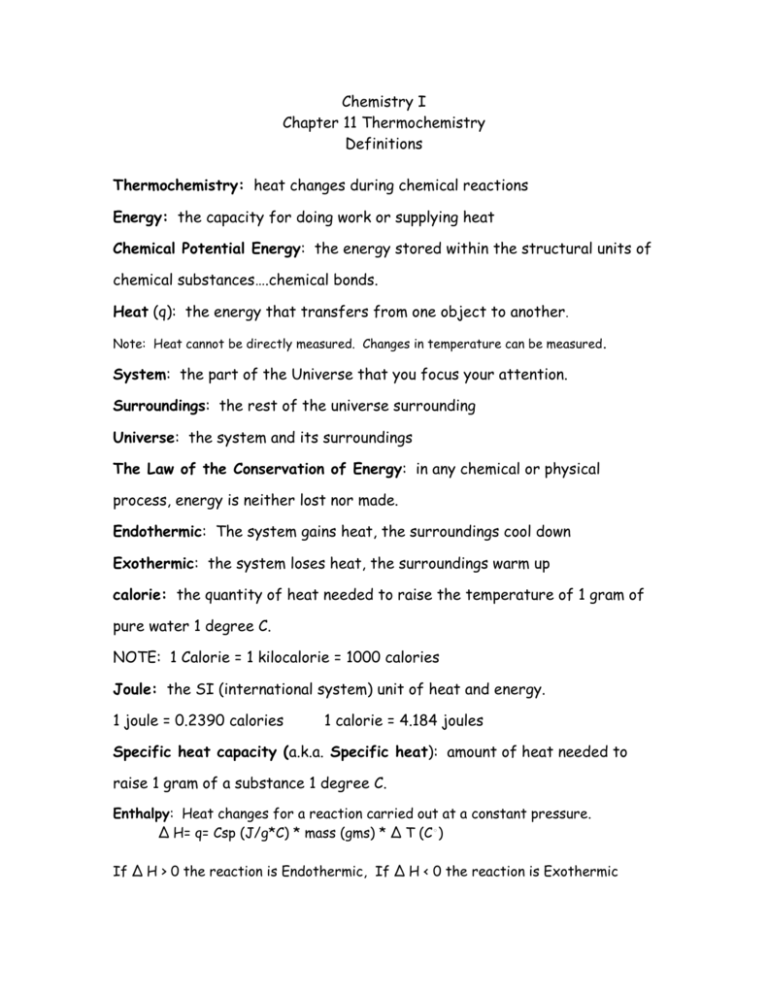
Chemistry I Chapter 11 Thermochemistry Definitions Thermochemistry: heat changes during chemical reactions Energy: the capacity for doing work or supplying heat Chemical Potential Energy: the energy stored within the structural units of chemical substances….chemical bonds. Heat (q): the energy that transfers from one object to another. Note: Heat cannot be directly measured. Changes in temperature can be measured . System: the part of the Universe that you focus your attention. Surroundings: the rest of the universe surrounding Universe: the system and its surroundings The Law of the Conservation of Energy: in any chemical or physical process, energy is neither lost nor made. Endothermic: The system gains heat, the surroundings cool down Exothermic: the system loses heat, the surroundings warm up calorie: the quantity of heat needed to raise the temperature of 1 gram of pure water 1 degree C. NOTE: 1 Calorie = 1 kilocalorie = 1000 calories Joule: the SI (international system) unit of heat and energy. 1 joule = 0.2390 calories 1 calorie = 4.184 joules Specific heat capacity (a.k.a. Specific heat): amount of heat needed to raise 1 gram of a substance 1 degree C. Enthalpy: Heat changes for a reaction carried out at a constant pressure. Δ H= q= Csp (J/g*C) * mass (gms) * Δ T (C◦) If Δ H > 0 the reaction is Endothermic, If Δ H < 0 the reaction is Exothermic Calorimetry: The accurate and precise measurement of heat change for a chemical & physical process. Calorimeter: the insulated device for the accurate and precise measurement of heat changes for a chemical & physical process. Thermochemical equation: An equation that includes the change in heat. Heat of reaction: is the heat change for the equation exactly as it is written. Heat of Combustion: The heat of the reaction for the complete burning of one mole of a substance. Molar heat of Fusion: (Δ Hfus) the amount of heat absorbed by one mole of a substance as it melts form a solid to a liquid at a constant temperature. Molar Heat of Solidification: (Δ Hsolid) the amount of heat released when one mole of a liquid solidifies at a constant temperature. Molar heat of vaporization: (Δ Hvap) the amount of heat necessary to vaporize one mole of a liquid. Molar heat of Condensation: (Δ Hcond) the amount of heat released when 1 mole of a vapor condenses. Molar heat of a Solution: (Δ Hsoln) the heat of change caused by the dissolution of one mole of a substance. Hess’s Law: or Hess’s law of heat summation, when adding two or more thermochemical equations to get a final equation, you may also add the heats of reaction to get the final heat of reaction. Standard Heat of formation: (Δ Hfo) the change in enthalpy that accompanies the formation of one mole of a compound from its elements with all their substances in their standard state at 25 Co.
